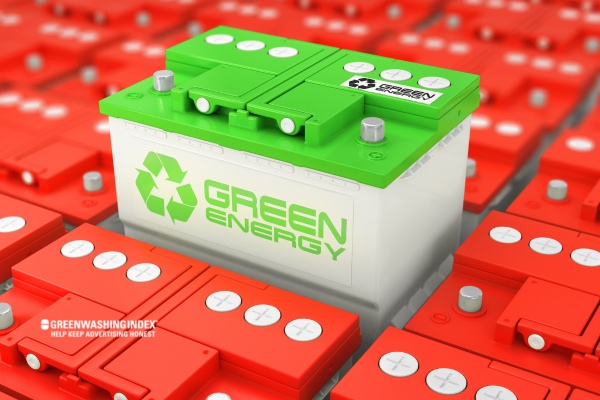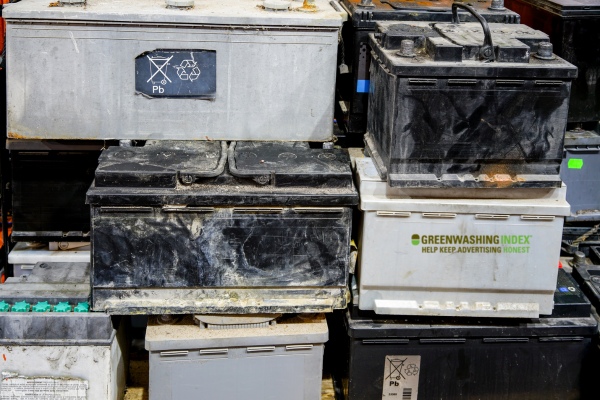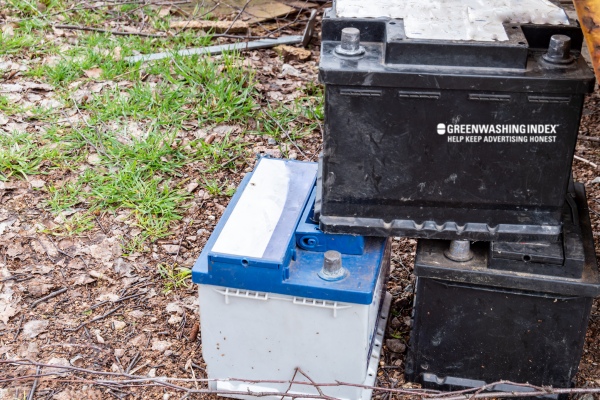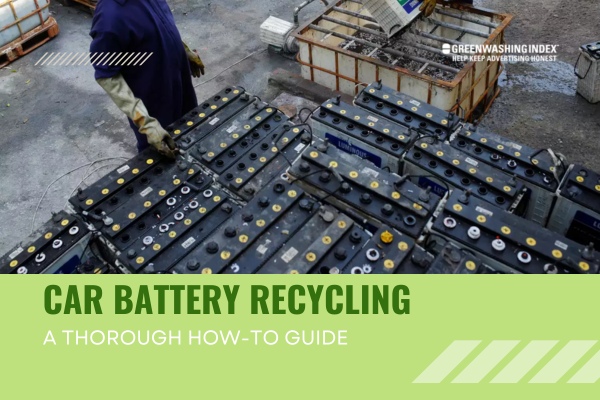When you look at your car, do you ever think about how every part of it plays a crucial role in its functionality? Especially a car battery, which serves as the heart of the vehicle. But as vital as they are while in service, their disposal can also cause intense environmental harm if not done correctly. Welcome to your comprehensive guide to car battery recycling—a critical step towards eco-friendly practices in automotive sustainability.
Recycling your old car battery helps decrease the demand for new ones, reducing our reliance on harmful mining practices that destroy habitats and harm ecosystems. Essentially, giving your expended car battery a second life through the process of recycling saves natural resources while keeping toxic elements out of landfills. By considering car battery recycling, you’re comprehensively contributing to sustainable energy practices and creating a greener future for everyone.
So What’s In For You From Here?
- Insight on why and how to recycle an old car battery
- Comprehensive understanding of impacts on our environment
- Knowledge about the collection and processing steps involved in recycling
- Tips on locating nearby collection centers and preparing batteries for drop-off
- Information about obstacles that may hinder effective battery recycling
Understanding Car Battery Recycling
Car battery recycling is a significant part of sustainable energy practices. It involves taking spent batteries that no longer have the capacity to energize a vehicle and processing them to extract valuable materials for reuse.

So, why exactly is car battery recycling crucial? First and foremost, we can’t keep making new batteries without considering the impact on our environment or running out of raw materials. To put it simply, not everything we require for today’s lifestyle comes in infinite supply.
Car battery recycling provides us with an opportunity to:
- Reuse older and existing material functions
- Retain valuable resources within the economic system
- Reduce demand on raw resources by re-integrating repurposed components
Recycling also lessens our environmental footprint as decreased dependency on mining directly relates to a lesser impact on habitats.
Interestingly, typical car batteries—also known as lead-acid batteries—are highly recyclable. Hence, when handled correctly, up to 99% of their components can be reprocessed!
Impact On Environment
It’s undeniable; that batteries left in landfills have hazardous effects on our climate and human health. A few concerns include:
- Soil Contamination: Over time, batteries corrode leading to leakage of toxic chemicals into the soil.
- Water Pollution: When rainwater encounters these chemicals seeping into ground layers, it results in contaminated water.
- Air Pollution: The corrosive process releases harmful pollutants into the air we breathe.
On top of these direct impacts, mining needed for fresh raw materials also poses severe threats to biodiversity. Therefore, I cannot stress enough how essential it is for us individually and collectively as a community to adopt car battery recycling—ensuring both ecosystem protection and promoting sustainable energy practices. Remember “Green automotive solutions” aren’t just buzzwords; they are necessary strides towards conserving our environment.
The Importance of Car Battery Recycling
As the world moves towards greener practices, car battery recycling has taken center stage due to its immense benefits for our environment and society. It not only seeks to safeguard the integrity of our ecosystems but also promotes sustainable energy practices.

Protecting the Ecosystem
Car batteries contain various harmful chemicals that, if improperly disposed of, can pose a significant threat to the ecosystem. Allowing these batteries to end up in landfills or recklessly dumping them can result in these detrimental substances seeping into the soil and contaminating water sources.
Such irresponsible actions have dangerous repercussions:
- Lead Poisoning: Car batteries are majorly composed of lead and sulfuric acid. If leaked into water sources or consumed by wildlife, these substances can lead to devastating effects such as nerve damage and poisoning.
- Soil Contamination: When chemicals from batteries leach into the soil, they change its composition – affecting plant growth negatively with potential dangers extending up the food chain.
- Water Pollution: Substances from within car batteries are harmful to aquatic life. This form of pollution doesn’t just harm wildlife; it could also make its way into drinking water supplies.
Ensuring Sustainability
The idea of sustainability centers around utilizing resources optimally, ensuring their longevity for future generations. Recycling plays an essential role here – particularly in terms of car battery recycling.
- Resource Management: A huge advantage is that almost 99% of a car battery can be recycled – which means existing materials are utilized efficiently rather than continuing the high demand for raw minerals.
- Reduced Mining Impact: The recycling process reduces our reliance on destructive mining operations which often displace habitats leading to biodiversity losses.
- Lower Energy Consumption: Creating new products from recycled components uses significantly less energy when compared with generation from raw materials – pushing us further towards sustainable energy practices.
Adopting eco-friendly disposal methods for car batteries contributes considerably to this cause. It helps us inch closer to realizing a future where we’re in harmony with nature, while our automotive needs continue to be met – essentially encapsulating the idea of green automotive solutions. Embracing car battery recycling is effectively embracing a sustainable, responsible future.
The Process of Car Battery Recycling
Car battery recycling may sound daunting, but once you understand the stages involved, it becomes comprehensible and straightforward. Below, I have outlined three major steps in this eco-friendly disposal method.
Collection And Transportation
At the heart of car battery recycling is the crucial step – collection and transportation.
- Finding Old Car Batteries: The process begins when old or used car batteries are found. These can be at local garages, battery retailers, or households. Some companies even offer pick-up services for larger quantities.
- Collection Centers: From there, these batteries are taken to designated collection centers which are typically integrated within waste management facilities.
- Professional Handling: It’s important to bear in mind that due to their toxic contents (like lead and acid), they have to be handled carefully during this phase to prevent any harm to the environment or people handling them.
- Transporting To Recycling Facilities: After successful collection, these batteries are transported in compliance with environmental regulations to recycling facilities where they undergo further processes for safe breakdown and separation.
Breaking Down And Separation
After arrival at a recycling center, each car battery is methodically broken down and its components separated through an environmentally conscious process.
- Battery Crushing: Initially, batteries are deposited into a hammer mill for crushing. During this stage, everything fragmentizes into tiny pieces while a ferrous metal is sorted out using magnets for further processing.
- Neutralizing Acids: Alongside the disintegration of metals and plastic fragments from each other happens the neutralization of any acid present—this results in water which gets treated before it reaches sewer lines.
- Material Separation: The remaining materials comprising heavy metals (like lead) and plastic then go through additional separating processes based on density differences.
Breaking down these batteries significantly contributes to reducing landfill waste – an essential aspect of sustainable practices in today’s world.
Re-purposing Components
Once separation is completed, each part of a car battery gets repurposed into new, beneficial products.
- Lead Reuse: The lead obtained from the batteries, once separated and purified, goes back into producing brand new batteries.
- Plastic Conversion: Plastics recovered during the recycling process are washed thoroughly, and melted down into pellets. These versatile fragments contribute to making a wide range of products – including new car battery casings.
- Sulfuric Acid Management: As for the leftover sulfuric acid, it can either be neutralized to produce water (that gets treated and sent to public sewer systems), or converted into sodium sulfate – a substance useful in laundry detergents and other textile applications.
Through this meticulous process, you see how every single component of an old car battery finds its way back into circulation instead of landing on landfill sites. It showcases not only the brilliance behind recycling but also our ability to come up with green automotive solutions that put sustainability at the forefront.
How You Can Recycle Your Old Car Batteries?
Participating in car battery recycling ensures environmental sustainability and helps to protect our ecosystems. But, where do you start? Don’t worry; here’s a comprehensive guide on how to recycle your old car batteries efficiently.

Finding A Collection Center
First things first – you need to identify a suitable location to drop off your used batteries for recycling. Quick internet searches can provide various eco-friendly disposal methods and green automotive solutions in your local area. However, take note:
- Do some research: Check online or contact the local waste management department for information about battery recycling collection centers near you.
- Visit auto part stores: Many auto retailers have drop-off points for used car batteries as they are actively participating in sustainable energy practices.
- Contact local garages and mechanics: Many of them are involved in the recycling process for car batteries or can direct you to the appropriate resources.
Remember, correctly disposing of your old car batteries significantly reduces their environmental impact.
Preparing Your Old Battery For Drop Off
Once you’ve identified an authorized collection center, it’s crucial to prepare your used battery appropriately before handing it over:
- Mind Safety Measures: Carefully handle the used battery, keeping it upright at all times. The acid inside is corrosive and can cause serious burns if spilled.
- Secure the Battery: Avoid allowing metal objects to come into contact with the terminals as it can initiate sparks that might lead to an explosion. For this reason, secure loose batteries with non-conductive tape over terminals.
- Keep Dry and Cool: Always remember to keep the stored battery in a cool and dry place away from flammable substances until drop-off time.
By following these precautions diligently, not only do we ensure our safety but also contribute towards effective car battery recycling efforts.
FAQs
Why is it important to recycle car batteries?
Recycling car batteries is crucial due to their harmful environmental impact when improperly disposed of. Car battery recycling transforms waste into reusable materials, reducing the demand for raw resources and mitigating the pollution associated with battery production.
What precautions should be taken when handling used car batteries for recycling?
Always wear protective gear like gloves and safety glasses when handling used car batteries. Avoid tilting or turning them upside down to prevent acid leaks, and transport them in a sturdy, non-metal container if possible.
Are there laws or penalties for improper disposal of car batteries?
Yes, many regions have laws against improper disposal of car batteries due to their hazardous nature. Penalties can include hefty fines and legal repercussions. It’s always best to check local regulations regarding this matter.
Conclusion
Car battery recycling represents a cornerstone in sustainable energy practices. Without it, we risk causing lasting harm to our environment and depleting valuable resources.
By grasping the importance of car battery recycling and putting it into practice, we can safeguard ecosystems, refuse the over-extraction of raw materials, reduce landfill waste, and help pave the road to greener automotive solutions.
Key Takeaway Points
- Car battery recycling is essential for environmental protection and sustainability.
- Incorrect disposal of car batteries can lead to significant damage to ecosystems.
- Proper procedures must be followed for safe and effective recycling of car batteries.
- Finding a local collection center is the first step towards responsible recycling.
- Public awareness needs boosting to overcome obstacles hindering effective car battery recycling.



